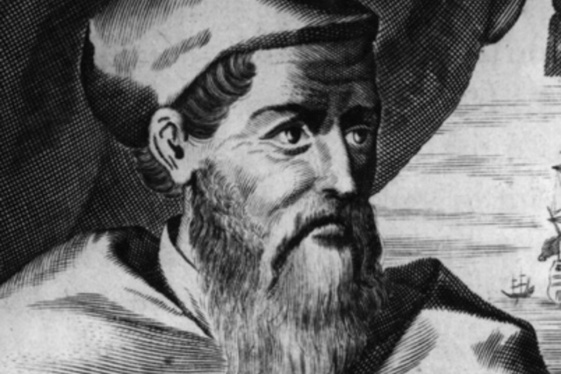

WTI Magazine #61 2015 May, 29
Author : Giovanni Verde Translation by:
A tormented and complex talent, Alda Merini has been the highest point of the Italian mystical and visionary poetry of the twentieth century. Born in Milan on March 21, 1931, in her teen years she experiences the first mental disorders, that will accompany her throughout her whole life, the ones she will define "the first shadows of my mind." Suffering from bipolar disorder, Alda Merini will know the horror of the asylum, tragedy at the center of her life and often engine of her poetic.
After a first phase of publications in the '60s, during which Alda Merini writes "Il gobbo e Luce" (The Hunchback and Light), lyrics published in the "Antologia della poesia italiana contemporanea" (Anthology of contemporary Italian poetry), a long period of silence begins, during which the mental health of the poet will alternate moments of lucidity to deep crisis due to mental disorders.
She returns to writing in 1979 with her masterpiece, "La Terra Santa" (The Holy Land), which will give her the Premio Librex Montale in 1993. The main theme of the collection is the asylum, metaphorically assimilated by Alda Merini to the Holy Land of biblical source. The period of internment of the writer is creatively metaphorized in the historical religious story of the Jewish people during the exodus to the Holy Land, narrated by the first Old Testament books.
In 1983, Alda Merini loses her husband. She will later meet an elderly poet, Michele Pierri, and marry him. They will move to Taranto, where she will face again the experience of the asylum. Back to Milan in 1986, Dr. Marcella Rizzo will take care of her, and Alda Merini will dedicate several poems to her doctor.
This is a period of great literary fecundity for the poet who will publish, after her first prose work, "L'altra verità, diario di una diversa " (The other truth, diary of a different) and the novels "Delirio amoroso" (Love delirium) and "Il tormento delle figure" (The torment of figures).
As already told, in 1993 she will awarded with the Premio Librex Montale, which consecrates her among the great contemporary writers and compares her to writers such as Giorgio Caproni, Attilio Bertolucci, Mario Luzi, Andrea Zanotto, Franco Fortini. Dates back to 1996 the publication of a booklet published by La Vita Felice called "Un'anima indocile " (A wayward soul): some old and new poems, a diary-confession, short stories and an interview to the author. In the same year she meets John Holliday, an artist from Bergamo with which she establishes a strong friendship and a close collaboration, starting with the publication of several art books.
In these years Merini's aphoristic production becomes very rich. In 1999 "Aforismi e magie" (Aphorisms and magic), published by Rizzoli, collects for the first time the best of this kind of works. In 2000 Einaudi publishes "Superba è la note" (Superb is the Night), a book that is the result of a meticulous job on numerous poems: the reader of this publication gets immersed and overwhelmed by strong contrasts and poetic language.
In 2003 and 2004 Einaudi publishes "Clinica dell'abbandono" (Clinic of abandonment). The book is divided into two sections: the first, "Poemi eroici" (heroic poems), contains poems written in the late nineties; the second, "Clinica dell'abbandono" (Clinic of abandonment), contains lines written in more recent years.
In February 2004, Alda is admitted to the Hospital San Paolo of Milan for health problems. From all over Italy e-mails are sent in support of an appeal made by a friend of the writer, who requires financial aid for Alda Merini. A campaign is started, with subscribers from all over the country. She will die on November 1, 2009, for a bone tumor.
Alda Merini's poetry stands strong in the Italian and European literature, with all the torment that has accompanied the life of this great writer, still not losing the humanity of her verses and the sense of love that her words were always able to donate to her readers. Alda Merini used to love this sentence of her: "I do not choose where to put an emotion. I choose those who I give it to".
You may be interested
-
Great Italians of the Past: A Christmas Eve...
Did you know that Christmas isn’t just a day but it’s a frame of mind?! And it’s to celebr...
-
Great Italians of the Past: Adriano Olivetti
WTI Magazine #79 2016 May 13Author : Giovanni Verde Translation by: An extr...
-
Great Italians of the Past: Alessandro Volta
WTI Magazine #85 2016 November 21Author : Giovanni Verde Translation by: Th...
-
Great Italians of the Past: Altiero Spinelli
WTI Magazine #74 2015 December 11Author : Giovanni Verde Translation by: Th...
-
Great Italians of the Past: Amedeo Modigliani
WTI Magazine #67 2015 September, 4Author : Giovanni Verde Translation by: S...
-
Great Italians of the past: Amerigo Vespucci
Despite being less "famous" than Christopher Columbus, Amerigo Vespucci is the Italian who...
-
Great Italians of the past: Anna Magnani
Anna Magnani was the anti-diva par excellence, the female icon of the neorealism. Among th...
-
Great Italians of the Past: Anna Maria Mozzon...
WTI Magazine #26 2014 Apr, 18Author : Giuseppina Salzano e Giovanni Verde Trans...













